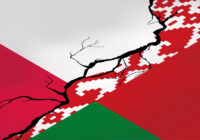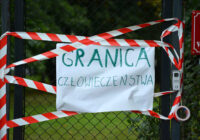Being virtuous is not in the job descriptions of the heads of sport’s major organizations. That’s not necessarily a bad thing. Sepp Blatter, the disgraced former president of football’s world governing body, Fifa, might have had both hands in the till, but, during his term of office (1998-2015), football enjoyed wonderful World Cups and the sport surged in international popularity. Exploitative labor practices were used in the preparation of the recent Qatar World Cup. But the football was often sublime. Head of World Athletics Lord Sebastian Coe was, in 2018, accused of misleading a UK parliamentary enquiry about the extent to which he knew of doping in Russia. Who knows how many thrilling competitions in track and field have been augmented by drugs?
A Herculean Dilemma
Thomas Bach is, I believe, a virtuous man, but he’s learning that it doesn’t pay to be too pious when running an international sport. As President of the International Olympic Committee (IOC) he faces a Herculean dilemma. He recently entertained the possibility that, in spite of widespread bans on Russian and Belarusian athletes across the spectrum of sports, he may allow competitors from those countries to appear at next year’s Olympics, in Paris. Even airing the prospect has forced him into a tight spot: “We [IOC] have been accused by the Russian side of being agents of the US, and we have been accused by the Ukrainian side of being promoters of war,” he despairs.
Like any right minded head of a global sporting organization, Bach is prioritizing the interests of sport over geopolitics—though he must be painfully aware that the two are inseparable. He should, in my opinion, be praised for designating human athletes as of paramount importance and creating the conditions under which over 400 highly trained, motivated and committed individuals are given the chance to compete. (At the Covid-delayed Tokyo 2020 Olympics, the Belarusian team was 96-strong. 335 Russian athletes were obliged to compete under the rubric “Russia Olympic Committee” due to doping violations.) Chances are he will leave no stone unturned in his effort to incorporate Russian and Belarussian in the games, under a neutral flag or no flag at all. .
But Ukraine is understandably angry at Bach’s softening position on Russian and Belarusian athletes and threatens to boycott the Paris Olympics, complicating Bach’s situation and raising doubts about the impartiality of the IOC and its ability to make a decision that will satisfy all parties. Countries that align or support Ukraine will feel the pressure to express their solidarity. The USA and Canada would be—perhaps already have been—encouraged to join a boycott. Several, if not all, western European nations would feature, as well Poland, Lithuania, Latvia, Slovakia and the Czech Republic. In addition to NATO countries, both Australia and New Zealand have condemned Russia and provided humanitarian aid to Ukraine. There are 206 National Olympic Committees affiliated with the IOC and it’s conceivable that an Olympic boycott could include over 30 nations. Individual athletes may be free to compete as neutrals (i.e. not representative of their countries).
Quite apart from the removal of some of the most powerful nations in sport, the IOC would almost certainly face the wrath of broadcasters, several of which will refuse to screen the tournament if their home nation is not involved. The most important of these is NBCUniversal, which in 2014, acquired the exclusive broadcast rights to the Olympic Games from 2022 through 2032 for a total cost of $7.75 billion. This agreement includes the broadcast rights to next year’s games, as well as the 2028 Olympic Games in Los Angeles.
Sports Boycotts in History
Sports boycotts are not uncommon. Over 60 countries, including the USA, China and the then West Germany refused to participate in the 1980 summer Olympics in Moscow in protest at the Soviet Union’s incursions in Afghanistan. The boycott didn’t lead to an immediate withdrawal of Soviet troops from Afghanistan, though its proponents argued that it heightened international attention and put pressure on the Soviet government. In retaliation, the Soviet Union led a boycott of the next Olympics, held in Los Angeles. Cuba, North Korea and East Germany (as it was) joined the Soviets, though only 13 nations in total abstained. The retaliatory boycott served to present the USA with a showcase for its athletic talent and American competitors dominated the tournament.
The boycott of South Africa during apartheid, beginning in the 1960s, is usually offered as an example of how politically effective boycotts can be. The argument is that the boycott helped to isolate South Africa and increase international pressure on the apartheid government to end discriminatory policies. The boycotts are widely credited with playing a significant role in bringing about the end of apartheid in the early 1990s. It’s an appealing justification, but there is no evidence that the boycott had any tangible effect: Its impact was largely symbolic. (The South Africa boycott was not maintained by all. For example, New Zealand’s rugby team continued to play South Africa, as did the Australian cricket team. Several other countries, including England, Ireland and Italy, sent teams to South Africa.)
Workable Solution?
Bach can gauge the pushback to the admittance of Russians and Belarusians from the reaction to the recent decision of the International Fencing Federation (FIE) to allow fencers from Russia and Belarus to return to international competitions. Over 300 fencers, including 9 medalists from the last Olympics in Tokyo, signed an open letter published Tuesday insisting that the FIE and the IOC should not allow Russian and Belarusian fencers to compete while the Ukraine conflict persists. Olga Kharlan, the Ukrainian Olympic gold medalist, was especially forceful: “I want to perform at the Olympics. But as a citizen of Ukraine, I can’t even imagine how to stand next to representatives of the Russian Federation.”
Wimbledon will also be of interest. The tournament has reversed its ban on Russian and Belarusian athletes, who may now compete as neutrals in the tennis tournament. The WTA and ATP organizations, which run the women’s and men’s professional tours and which calculates the rankings to determine qualification for the Olympics, described the Wimbledon decision as “a workable solution which protects the fairness of the game.”
The position of Russia in football is unclear: It retains its membership of UEFA, the European governing organization, despite being banned from playing. There is talk that Russia could relinquish its membership and join the Asian Football Confederation. This may encourage UEFA to review its position. Russian football brings with it lucrative broadcasting contracts.
Bach’s Crapshoot
But the Olympics is like no other sports event and Bach will need to gamble. The easy choice is to maintain the status quo though this will jar with Bach’s ideals. My guess is that Bach will opt for the crapshoot and welcome Russians and Belarusians back, but with the kind of provisos he has recently outlined (see below). Then what? Ukraine will bail out for sure. It will also urge the other 30 countries that are members of NATO to follow suit. Poland, a member of NATO since 1999 and strong supporter of Ukraine’s independence and territorial integrity, will be first to follow, then other NATO members will be wringing their hands. 206 countries sent teams to the Tokyo Olympics, so losing the 31 NATO countries would be damaging but perhaps not terminally.
What about France? A founder member of NATO, along with the USA, Canada and 9 other nations in 1949, France withdrew from NATO’s military command structure and pursued an independent defense policy in 1966. The 2024 Olympics are scheduled to take place in Paris from July 26 to August 11. The Paralympic Games will follow from August 28 to September 8, also in Paris. Unthinkable as it is, a NATO boycott would lead France into the impossible and unprecedented position of boycotting its own Olympics.
Such a perverse prospect will not be in Bach’s calculations at the moment, but it will loom larger as we approach next July. Bach has made it signally clear that, while he doesn’t favor the expulsion of Russia and Belarus, he will accept the decisions of the IOC’s member sports on whether or not to allow competitors from these countries. Ultimately though the IOC has the final say on whether a qualifying athlete can enter the Olympics and that means Bach will have to wrestle with his conscience. My guess is that he will allow Russians and Belarussians but respect bans if individual sports, like track and field, insist on exclusion (there is no chance World Athletics will allow Russians or Belarusians, as Lord Coe recently made clear).
If my suspicion is right, we will witness the most controversial preamble to an Olympics in history—and I am not neglecting those politically-charged tournaments I mentioned earlier. Boycotts have a self-perpetuating quality, each withdrawal adding pressure on others to pull out. NATO countries who have supported Ukraine will be taxed with making one of two equally unpopular decisions: ignore Ukraine’s requests or join a boycott that will be deeply unpopular among their own populations.
The recommendations issued by the IOC Executive Board are:
- Athletes with a Russian or a Belarusian passport must compete only as individual neutral athletes.
- Teams of athletes with a Russian or Belarusian passport cannot be considered.
- Athletes who actively support the war cannot compete. Support personnel who actively support the war cannot be entered.
- Athletes contracted to the Russian or Belarusian military or national security agencies cannot compete. Support personnel contracted to the Russian or Belarusian military or national security agencies cannot be entered.
- Any such individual neutral athlete, like all the other participating athletes, must meet all anti-doping requirements applicable to them and particularly those set out in the anti-doping rules of the international federations.
- The sanctions against those responsible for the war, the Russian and Belarusian states and governments, must remain in place, meaning no international sports events organized or supported by an international federation or national Olympic committee in Russia or Belarus. No flag, anthem, colors or any other identifications whatsoever of these countries displayed at any sports event or meeting, including the entire venue.
[Ellis Cashmore’s latest book is The Destruction and Creation of Michael Jackson.]
The views expressed in this article are the author’s own and do not necessarily reflect Fair Observer’s editorial policy.
Support Fair Observer
We rely on your support for our independence, diversity and quality.
For more than 10 years, Fair Observer has been free, fair and independent. No billionaire owns us, no advertisers control us. We are a reader-supported nonprofit. Unlike many other publications, we keep our content free for readers regardless of where they live or whether they can afford to pay. We have no paywalls and no ads.
In the post-truth era of fake news, echo chambers and filter bubbles, we publish a plurality of perspectives from around the world. Anyone can publish with us, but everyone goes through a rigorous editorial process. So, you get fact-checked, well-reasoned content instead of noise.
We publish 2,500+ voices from 90+ countries. We also conduct education and training programs
on subjects ranging from digital media and journalism to writing and critical thinking. This
doesn’t come cheap. Servers, editors, trainers and web developers cost
money.
Please consider supporting us on a regular basis as a recurring donor or a
sustaining member.
Will you support FO’s journalism?
We rely on your support for our independence, diversity and quality.








Comment